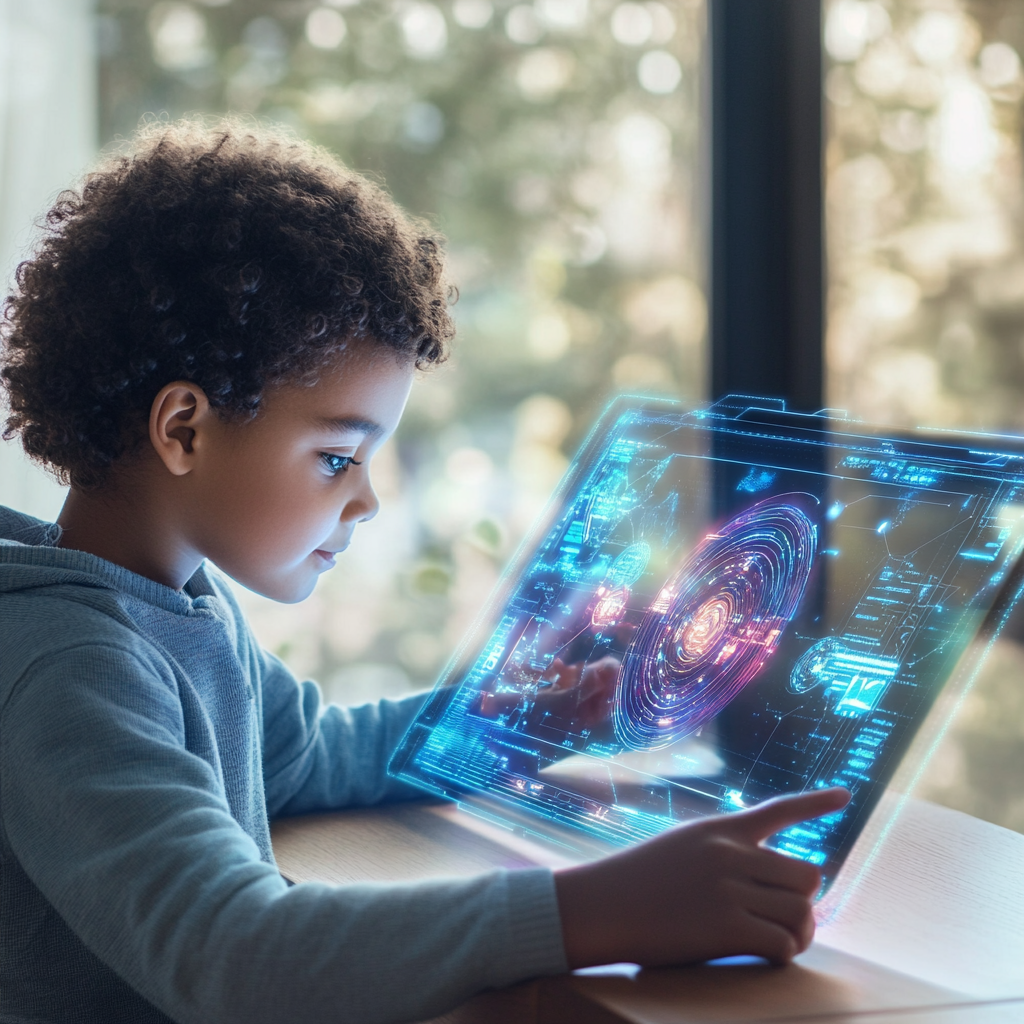As we close out 2023, I find myself reflecting on a year filled with both personal achievements and significant developments in the world of AI. It was an honor to learn that several of my written works were recognized and included in various "best of" lists.
John Bailey Joins FAS Board Of Directors
I am thrilled to share that I have been appointed to the board of the Federation of American Scientists (FAS). It is an incredible honor to have the opportunity to contribute to the vital work of this important organization, particularly during a time when science and technology are progressing at an unprecedented pace.
Autonomous Vehicles: A Safer Road Ahead
Recent studies reveal autonomous vehicles (AVs) boast impressive safety records, with far fewer and less severe crashes compared to conventional cars. Advanced AV systems that constantly monitor surroundings, precisely follow traffic laws, and avoid dangerous situations contribute to their superior performance. With rapid technological improvements enabling AVs to learn from analyzing massive amounts of human driving data, they are poised to drastically reduce traffic accidents and fatalities. Further real-world experience for AVs promises to refine their systems and enhance safety even more. Regulators should enable this progress while enacting reasonable safeguards.
ChatGOV: Harnessing the Power of AI for Better Government Service Delivery
The capabilities of AI promise not only efficiency but potentially a more accessible interface for citizens. As governments begin to integrate these technologies into their service-delivery mechanisms, it is imperative to approach the adoption with due diligence, guided by robust frameworks like NIST’s AI RMF. With a combination of strategic foresight, stakeholder engagement, and capacity building, governments can harness the power of AI to truly transform public service, making it more responsive and citizen-centric than ever before.
The Education Exchange: “Like a Very Smart, Eager-to-Please Intern”
The Opportunities and Challenges of AI in Education
There is an incredible amount of excitement and confusion around what this wave of generative AI means for education. These technologies are rapidly improving, and developers are introducing capabilities that would have been considered science fiction just a few years ago. In my latest Education Next piece, I provide an overview of generative AI and explore how this technology will influence how students learn, how teachers work, and ultimately how we structure our education system.
Treading Carefully: The Precautionary Principle in AI Development
The Biden administration recently secured voluntary commitments from major AI companies to manage risks associated with AI, including ensuring products are safe and transparent about capabilities and limitations. While a step in the right direction, the vague pledges largely reaffirm existing activities and oversight mechanisms are unclear. This embodies the precautionary principle which can hamper innovation if taken too far through accumulating requirements. There should be a balance between risk mitigation and advancing AI to realize its benefits. The commitments are also oriented toward avoiding harms rather than proactively leveraging AI's potential to address pressing societal challenges like climate change and learning loss. A more ambitious, benefit-focused approach is needed alongside reasonable precautions.
Leveraging AI’s Immense Capabilities While Safeguarding the Mental Health of Our YouthLeveraging AI’s Immense Capabilities While Safeguarding the Mental Health of Our Youth
The rise of artificial intelligence (AI) coincides with a concerning public health crisis of loneliness and isolation, particularly among young people. According to a CDC survey, a shocking 44% of adolescents are dealing with constant feelings of sadness and hopelessness. As AI technology becomes more prevalent, concerns are growing about its potential to worsen these emotional struggles. This new technological context necessitates a deeper investigation into the role AI might play in intensifying these existing societal issues.
Honored to Be Included in the Washingtonian Magazine's list of Most Influential People
Honored to be included in the Washingtonian Magazine's list of Most Influential People along with so many inspiring leaders. Wonderful to see many friends and colleagues on this list.
The Promise of Personalized Learning Never Delivered. Today’s AI Is Different
Over the past decade, many have been disappointed by the unfulfilled promises of technology transforming education. However, recent advancements in AI, such as OpenAI's GPT-4, may signal a genuine breakthrough. These large-language models have smarter capabilities, function as reasoning engines, use language as an interface, and are scaling rapidly thanks to tech giants. As a result, AI-powered tutoring and teaching assistants are emerging to provide individualized learning, automate administrative tasks, and offer constructive critiques on student writing. While there are limitations, it is expected that future iterations will address these issues. Harnessing AI's potential could lead to a future where education is more effective, equitable, and personalized, with teachers focusing on fostering meaningful connections with their students.
Modernizing State Services: Harnessing Technology for Enhanced Public Service Delivery
The COVID-19 pandemic has exposed the urgency for state governments to improve digital service delivery and address long-standing technology challenges. The Tech Talent Project, in collaboration with AEI, the Beeck Center for Social Impact + Innovation at Georgetown University, and New America, has released a report offering guidance for states to build technical capacity and avoid past pitfalls. I had the privilege of co-chairing this effort with Cecilia Muñoz Former Assistant to the President and Director, White House Domestic Policy Council.
From Automation to Reinvention: How AI Is Shifting the Nature of Work
The rise of AI technologies like ChatGPT promises to boost global GDP by 7% in a decade, according to Goldman Sachs. However, this may disrupt 63% of US jobs, including higher-skilled professions like auditors and interpreters. These AI tools will change the nature of work, shifting focus from mundane tasks to more advanced, human-centric activities. Surprisingly, AI could benefit the least skilled workers, narrowing the performance gap among employees. While job displacement is inevitable, the larger disruption may be the creation of new, hybrid jobs combining domain expertise with AI skills. Policymakers must proactively invest in education and workforce training to ease these transitions and capitalize on AI's productivity potential.
Building Trust in AI: A Call for Clear Guidelines to Harness Its Benefits
Policymakers have yet to fully understand the profound effect the AI revolution will have on our economy, national security, and social well-being. AI, for all its benefits, will also present new risks, challenges, and tensions with our values. To prevent the worst consequences of AI, clear regulations are needed to harness its benefits while managing its risks.
Assessing the Threat of AI Misuse in Disinformation Campaigns
OpenAI. Georgetown University’s Center for Security and Emerging Technology and the Stanford Internet Observatory wrote a provocative report surfacing misinformation risks posed by AI. The report provides a thoughtful framework through which to think about the threat of AI-enabled influence operations and some of the steps that can minimize those risks along with their associated trade-offs.
Quarantines, Not School Closures, Led to Devastating Losses in Math and Reading
The recent dismal results from the National Assessment of Educational Progress introduced a new learning-loss puzzle. It was assumed that states with more remote instruction would have lower academic scores than those with more in-person classes during the pandemic. But states that had more days of in-class learning also saw declines. The likely reason is due to the hidden disruptions to student learning caused by COVID quarantines.



















